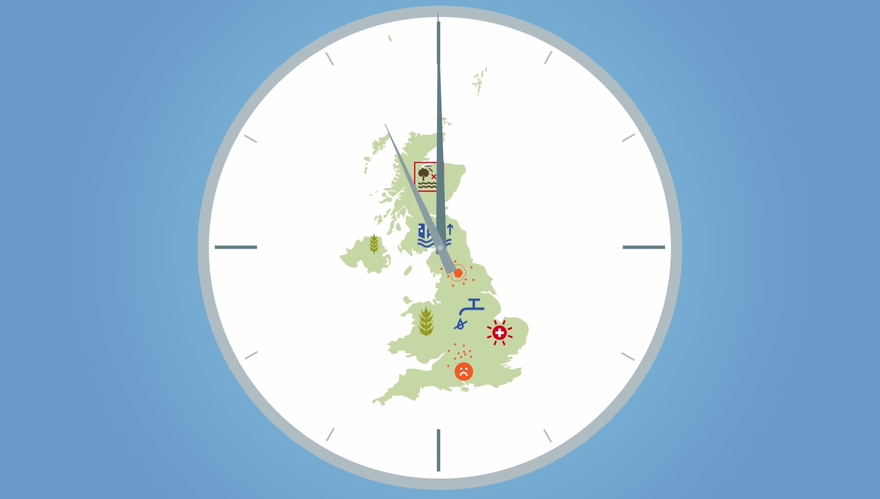UK colocation operators celebrated their first day of being recognized by the government as an ‘industry’ as a new Climate Change Agreement (CCA) designed specifically for data centers came into effect yesterday.
Numerous industry players lobbied to be recognized as an ‘energy intense’ industry under the government scheme, which has been running for about 50 other sectors since 2001.
Under the CCA approved industries can receive tax reductions or exclusions from carbon taxes if they reach energy efficiency targets.
In the UK these schemes are the climate change levy (CCL) or Carbon Reduction Commitment (CRC).
Some have likened these past carbon change agreements for the industry as having a stick with no carrot attached, saying the new CCA offers better incentives for energy efficiency.
“If you pay the CCL and CRC, the value of the CCA rebate is around £27 per tonne of carbon (CCL is about £10 per tonne and CRC is about £16 per tonne),” TechUK said.
“This is made up of a 90% rebate on the CCL (0.541 p per kWh of electricity from 1 April 2014) and the exclusion of energy captured under the CCA from the CRC (equivalent to 0.867p per kWh from 1 April 2014).”
The combined benefit of operating under the CCA is 1.35p per kWh of electricity.
The body representing the data center industry – Tech UK - said being part of the CCA scheme not only provides government recognition of the industry but improves investor confidence and competitiveness at a time when rising power prices have seen some developments move offshore.
At the heart of the CCA is energy stewardship and increased consolidation – the scheme provides incentives for operators to think more efficiently about their data centers, using power usage effectiveness (PUE) readings as a benchmark.
The sector has agreed upon a 15% increase in PUE by 2020, over a baseline set at 2011.
For individual sites, they must show a 30% reduction in non-IT energy over the same period – a move TechUK said reduces the impact on early adopters of energy efficient technologies which already lead to low PUE ratings.
TechUK said all current ratings will be reviewed in 2016.
To date, the CCA only applies to data center operators providing colocation space.
TechUK said the government currently classes a facility a ‘colocation operation’ if it houses third-party computing assets, such as servers.
“Space used to house servers that provide corporate IT function for the operator is ineligible”, Tech UK said.
Tech UK head of climate change programmes Emma Fryer said companies that offer both hosting and colocation space - or that have other operational divisions with colo - will be looked at on a case-by-case basis, and registered on a pro-rata basis for colocation.
“It is when the industry is providing services on their own servers that we end up having lots of questions,” Fryer said.
In future, Fryer said she expects the UK will provide guidance to other countries on the CCA, and will also learn from other climate change initiatives seen elsewhere in the world.
“We will have some interesting comparisons to do with other countries,” Fryer said.
“There are a lot of interesting policy lessons we can learn, but that said, the UK does have more climate change policy instruments than any other country in the world.”
Crucial to getting registrants on board is the energy data they will collect. Colocation providers require 12 months of auditable PUE data from each participating site.
Participants already registered for the CRC will be excluded from it on signing up for the CCA. To be eligible participants must have an electricity supply of at least 200kW and a supply back-up electricity supply that can kick in when supply is interrupted.
Temperature and humidity must also be regulated in connection with the operation of the computer equipment.
If you want to find out more you can contact [email protected] or you can register at [email protected], or phone the CCA helpline on 0845 600 8122 or visit www.cclevy.com.

